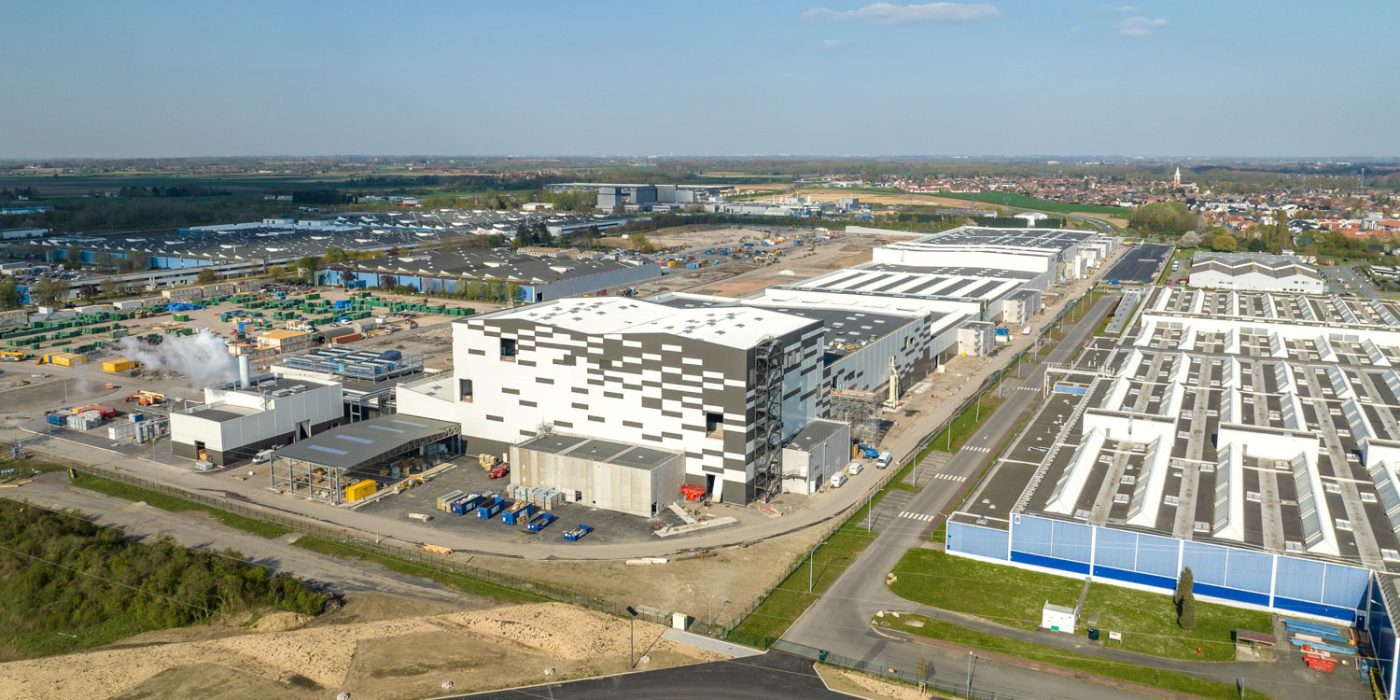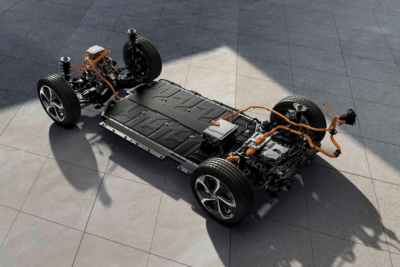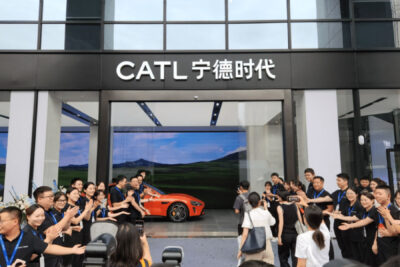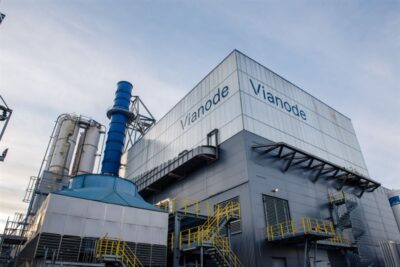ACC puts work on battery factories in Kaiserslautern and Termoli on hold
ACC has been planning three European battery cell plants for years. The first one in Billy-Berclau/Douvrin, France, is currently ramping up following its opening last year. The other two factories in Kaiserslautern and Termoli are scheduled to go online in 2025 and 2026, respectively. However, as reported by Reuters and various other media outlets, ACC has temporarily suspended work on the plants in Germany and Italy. The reason given is the declining demand for electric vehicles. The company is said to have explained that it needs to research and develop cost-effective batteries in order to supply cheaper electric vehicles and that it will specify its industrial and construction schedule at the end of 2024 or beginning of 2025. The joint venture is currently focussing on NMC (nickel-manganese-cobalt) battery cells.
ACC is owned by Stellantis, Mercedes and Saft, a battery subsidiary of TotalEnergies – recently in a 45:30:25 per cent ratio. It recently became apparent that Stellantis could be reorienting itself. It has long been suspected that the OEM could be looking for an alternative partner in Chinese manufacturer CATL to build a European factory for cheaper LFP cells. Reuters now writes that such a production facility has already been agreed between the two partners.
Adapt investment plans to market sales
Carlos Tavares, CEO of Stellantis, was recently asked in a media briefing whether his company would support three ACC factories in Europe in addition to the joint venture with CATL. “We are going to adjust our investment plans on EVs to the pace at which market sales of EVs grow. We do not control that speed,” he replied, according to Reuters.
According to the agency, Mercedes wrote in a statement that it is committed to ACC and that its electrification strategy remains on track. However, as was announced in mid-May, the Stuttgart-based company is currently also putting the brakes on investment by changing course. Previously, the company had pursued a very stringent ‘electric only’ strategy. The reason for turning away from this was the disappointing sales figures for current luxury electric cars, which were forcing Mercedes to make ‘tough cuts’, as the Handelsblatt newspaper reported in May.
Battery cell technology on the test bench
This context helps to explain why at least two out of three shareholders are likely to see the need to put the brakes on plant construction. With regard to Kaiserslautern, the Rheinpfalz newspaper first reported on the pause – citing ACC Secretary General Matthieu Hubert. The state chancellery of Rhineland-Palatinate confirmed the decision on Tuesday. Hubert is quoted in the Rheinpfalz newspaper as saying that the market for electric cars is developing more slowly than expected. Additionally: “Before we invest, and we are talking about billions, we have to answer the question of what kind of battery cell technology the market requires.”
In the meantime, the state government of Rhineland-Palatinate has also spoken out. It is very confident that production will take place in Kaiserslautern, they say. According to the original plans, ACC wanted to invest two of a total of seven billion euros in Kaiserslautern. The public funding for construction at the Opel site amounts to around 437 million euros. The previous schedule envisaged completing the construction work in Kaiserslautern by mid-2024, then installing the equipment and starting production at the beginning of 2025. Three production blocks with a capacity of 13.4 GWh each were planned by 2030 – around 40 GWh in total. 40 GWh each are also planned for the French and Italian sites.
It is not yet known to what extent the reorientation phase at ACC will also affect France. The first production block with 13.4 GWh is currently being ramped up there. A further two blocks have been planned to date in order to reach the aforementioned 40 GWh.
Originally a Franco-German initiative
The beginnings of ACC date back to 2018 – not yet under this name at the time. The project began at the end of 2018 as a Franco-German battery cell initiative by PSA, Opel and Saft, which applied for the so-called ‘Altmaier billion’ in reference to the then Minister of Economic Affairs. The plan for a plant on both sides of the Rhine then became part of the first ‘Battery IPCEI’. Encouraged by this, the Franco-German consortium gave the go-ahead for pilot production at a Saft plant in France in January 2020. There, the partners developed the cell technology for the future plants in Douvrin and Kaiserslautern. At that time, there was still talk of 24 GWh per year and factory.
The joint venture Automotive Cell Company (ACC) was officially founded in September 2020 by PSA, Opel and TotalEnergies subsidiary Saft. With the merger of PSA and FCA to form today’s Stellantis Group, the third ACC site in Termoli, Italy, near the Fiat plant there, came into play in 2022. In March 2022, Mercedes-Benz had officially become another ACC partner shortly beforehand.
Loan for four more production blocks
In February of this year, ACC took out a loan of 4.4 billion euros from commercial banks to finance the construction of the three battery cell factories. The shareholders also injected additional funds at the same time – which, as mentioned above, had an impact on the previously balanced ownership structure. According to official information, the loan was to be used to finance four further production blocks, one in France, one in Germany and two in Italy. However, the debt package was not only intended to finance the new production capacities, but also the company’s development work. The money may therefore now be channelled into the development of cheaper cell technologies.
Meanwhile, ACC is not the first battery cell manufacturer to adjust its plans. Just a few days ago, Chinese battery specialist SVOLT announced that it would not be realising its plant in Lauchhammer, Brandenburg, which was announced in September 2022. According to SVOLT, it has reassessed its location strategy – and has also expressed frustration at the lack of political support. In a statement issued by the company last week, it said: “In addition to an already low level of planning security at various levels – from the threat of international punitive tariffs to market distortions due to lengthy and unevenly distributed subsidies”, a “significant customer project has also been cancelled.” In addition, the renewed discussions about the end of combustion engines in the EU are having a counterproductive effect on the planned localisation efforts. The construction of the SVOLT factory in Saarland continues to be delayed at the same time.
Another example is Ford: the plans for a Turkish battery cell plant under the direction of LG Energy Solution and Koç – a shareholder in the Ford Otosan joint venture alongside Ford – have been on ice for some time. The background to this is a cost-cutting programme adopted by the Ford Group in response to losses running into billions at Ford’s Model e electric division and weakening consumer demand.
reuters.com, automobilwoche.de





0 Comments